

 Union organizing could suffer a devastating blow by the U.S. Supreme Court this term.
Union organizing could suffer a devastating blow by the U.S. Supreme Court this term.
In November, justices hear a case on labor-management “neutrality pacts” — agreements which spell out each side’s role in organizing. Usually, this means employers are barred from engaging in overt anti-union practices and accept some form of “card check” certification.
Unions use neutrality pacts to reduce the legal entanglements and employer intimidation that have become widespread in National Labor Relations Board-supervised elections.
After years of struggle, UNITE HERE, for example, recently pressured Hyatt Hotels to accept neutrality terms. And unions in Los Angeles, when possible, make such deals in return for support of large development projects.
It’s been a bad decade (and a bad half-century) for the American labor movement:
Union membership percentages continuing to slide, states restrict public sector bargaining and right-to-work laws have spread.
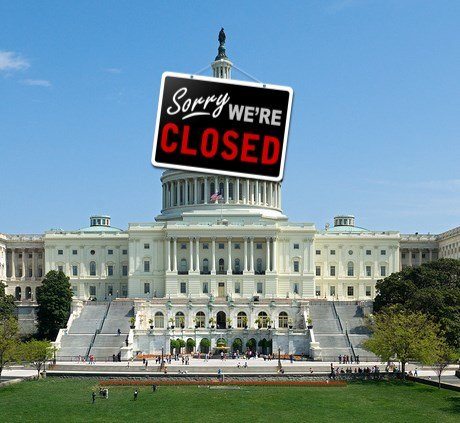
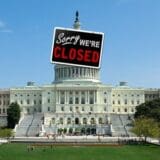
“Will Work for Food.” How many times do we see these signs at most every street corner? For those of who are federal employees and who are also union representatives and officers, the time seems to be right for us to get out our Sharpies and make our own signs.
The last several years have seen my sisters and brothers in Social Security and other agencies continually being threatened with shutdowns and furloughs as a result of the lack of federal budgets or continuing resolutions, failure to raise the debt ceiling as well as the fiscal cliff. Now as of October 1, 2013 we are going to be shut down again.
In 1995, Social Security employees such as myself were called “non-essential” and sent home. After a press blitz, we were called at home told we were essential and should come back to work —


 Those of us who grew up in public school systems were taught two indelible but contradictory lessons. One, from civics classes, was that laws are created (and government run) according to the necessities of compromise. (The reason politics is called the art of the possible.) The other, drilled into us by history instructors, reminded us of the evils of compromising with fanatics. (The endless Sudetenland analogies we sat through.)
Those of us who grew up in public school systems were taught two indelible but contradictory lessons. One, from civics classes, was that laws are created (and government run) according to the necessities of compromise. (The reason politics is called the art of the possible.) The other, drilled into us by history instructors, reminded us of the evils of compromising with fanatics. (The endless Sudetenland analogies we sat through.)
But these two lessons never held equivalent weight because while we could see compromise all around us, history was for other countries. The Atlantic’s James Fallows, happily, has pointed out the error of that thinking in a couple of recent online pieces about the pending government shutdown. His thesis, basically, is that the media have it all wrong in their reporting on the shutdown (which could come tomorrow, October 1) and the even more troubling likelihood of a debt default (see how much your 401(k) is worth in two weeks).
» Read more about: Tea Party Over Country: Why the Shutdown Is Coming »
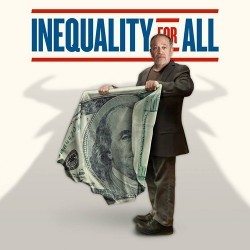
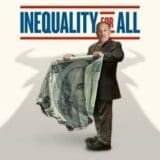
 With the release of the documentary Inequality for All, the core progressive story about what is wrong with the economy is now on the silver screen. For those of us who have been working to articulate what we call a progressive economic narrative, it is a major milestone.
With the release of the documentary Inequality for All, the core progressive story about what is wrong with the economy is now on the silver screen. For those of us who have been working to articulate what we call a progressive economic narrative, it is a major milestone.
The right spent decades projecting their view that prosperity is created through limited government and free markets, concepts that still dominate most Americans’ thinking, even as the American dream is becoming a nightmare for more and more families. The new movie provides a powerful way to popularize a very different story.
Inequality for All is based around a big lecture course that Robert Reich gives at the University of California Berkeley. Reich and the film’s director, Jacob Kornbluth, mix facts, infographics, documentary footage and profiles of families whose lives have been scarred by the new economy with the personal story of Reich’s lifelong work to push for a just economy,


At the 1992 Republican National Convention, then Vice Presidential nominee Dan Quayle summed up his thoughts on taxing those with greatest wealth at higher rates with the line, “Why should the best people be punished?” This rare candor spotlights the beliefs still central in today’s economic policymaking.
Last week, House member Kevin Cramer (R-ND) invoked scripture to justify taking food from the mouths of babes, saying “If anyone is not willing to work, let him not eat.” His colleague, Rep. Steve Southerland (R-FL) similarly declared, “work is a blessing.” Clearly, the economy is intended as far more than an aggregation of what we produce, purchase, consume and invest. We’re meant to see it as an instrument to impose a particular morality: to reward the good and punish the naughty.
Republicans would go further and have us believe the economy is an angry and vengeful God.
» Read more about: Holy Hypocrites: Why Conservatives Punish the Poor »

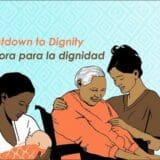
Domestic workers in California — and groups and people who support better employment conditions for them nationwide — are hailing a new bill of labor rights signed into law Thursday in Sacramento.
The signing of AB 241 ensures that domestic workers in private homes are paid overtime for the hours they work.
The law goes into effect on January 1, a year before similar but federal regulations announced this month begin, California state Assemblymember Tom Ammiano said in a statement. He is the main author of the bill.
“This is a big step for respecting and recognizing domestic work as real work, and the fight doesn’t stop here,” Marcela Escamilla, a San Francisco domestic worker, said in a statement released by Mujeres Unidas y Activas.
“The fire for this movement will now burn brighter for domestic workers across the country fighting for the same recognition.”
Mujeres Unidas y Activas,
» Read more about: State’s Domestic Workers Celebrate O.T. Law »


As anyone thinking about enrolling in a college or university knows, tuition is not cheap. The National Association of Student Financial Aid Administrators (NASFAA) notes that since the early 1980s, tuition has risen by approximately seven percent a year, causing two-thirds of students to borrow to complete their degrees. Although grants and outright scholarships exist, part of the problem, NASFAA’s website explains, is that “in 1975 the states picked up 60 percent of the tab while families shouldered 33 percent” and the federal government picked up the balance. Thirty-eight years later, the states pay approximately 34 percent and the feds pay 16 percent, leaving students and their families to shell out – often through loans – the remaining half.
And it’s getting worse. According to the Center on Budget and Policy Priorities, since the start of the recession in 2008, “cuts to higher education have been severe and almost universal.”
» Read more about: Tuition Woes Hurting Women Students More »


 In a new report, University of Southern California professor and warehousing and logistics expert Juan D. de Lara reveals that the local warehousing industry is relying on low-paid, temporary workers at serious risk to the ongoing economic health of the region.
In a new report, University of Southern California professor and warehousing and logistics expert Juan D. de Lara reveals that the local warehousing industry is relying on low-paid, temporary workers at serious risk to the ongoing economic health of the region.
De Lara takes a closer look at labor and census statistics to unpack actual warehouse worker wages.
“It should be clear that most blue collar warehouse workers earn far less than the average logistics annual wage of $45,000,” De Lara writes in Work: Path to the Middle Class or Road to Economic Insecurity?, released by USC’s Program for Environmental and Regional Equality. “Any conversation about the future of the logistics industry as a key driver in the Inland Empire’s regional economy should begin with an honest assessment of blue-collar vs. white collar wages.”
While the average logistics wage is often taken at face value,
» Read more about: USC Report: Low Wages Damaging Inland Empire Economy »


In a move to slash the retirement benefits of public employees in California, a group of mostly conservative policy advocates has been working behind the scenes on a possible 2014 ballot initiative. A copy of the still-secret draft initiative, which could dramatically impact the lives of hundreds of thousands of Californians and send a signal nationwide, has been obtained by Frying Pan News. (See the document’s text following this article or click here.)
If enacted, the proposed law would allow the state and local governments to cut back retirement benefits for current employees for the years of work they perform after the changes go into effect. Previous efforts to curb retirement benefits for public employees have largely focused on newly hired workers, but the initiative would shrink pensions for workers who are currently on the job.
“This initiative defines that a government employee’s ‘vested rights’ only applies to pension and retiree healthcare benefits earned for service already rendered,
» Read more about: Exclusive: Pension-Cutting Ballot Initiative Revealed »
It is 3 p.m., June 27, 2013 and I find myself walking on the sidewalk along Pacific Coast Highway in Newport Beach. Just like any other day in Southern California, the skies are blue, the sun is bright gold and the owners of new BMWs, Mercedes Benzes and Maseratis speed down the highway without a care in the world. Unlike any other day, I find myself among a delegation of community members, clergy, reporters and union representatives in support of Joe Dickson and his co-workers.
We march towards the elegant Newport Beach Balboa Bay Country Club to speak with Alireza Mahdavi before he gives a speech to a group of investors and financiers at a convention. We certainly did not pay $900 to have some alone time with the CEO of American Logistics International; I don’t think any of us have that kind of money to spend on a chicken dinner alone.
» Read more about: Alireza Mahdavi: Come Out, Come Out Wherever You Are! »